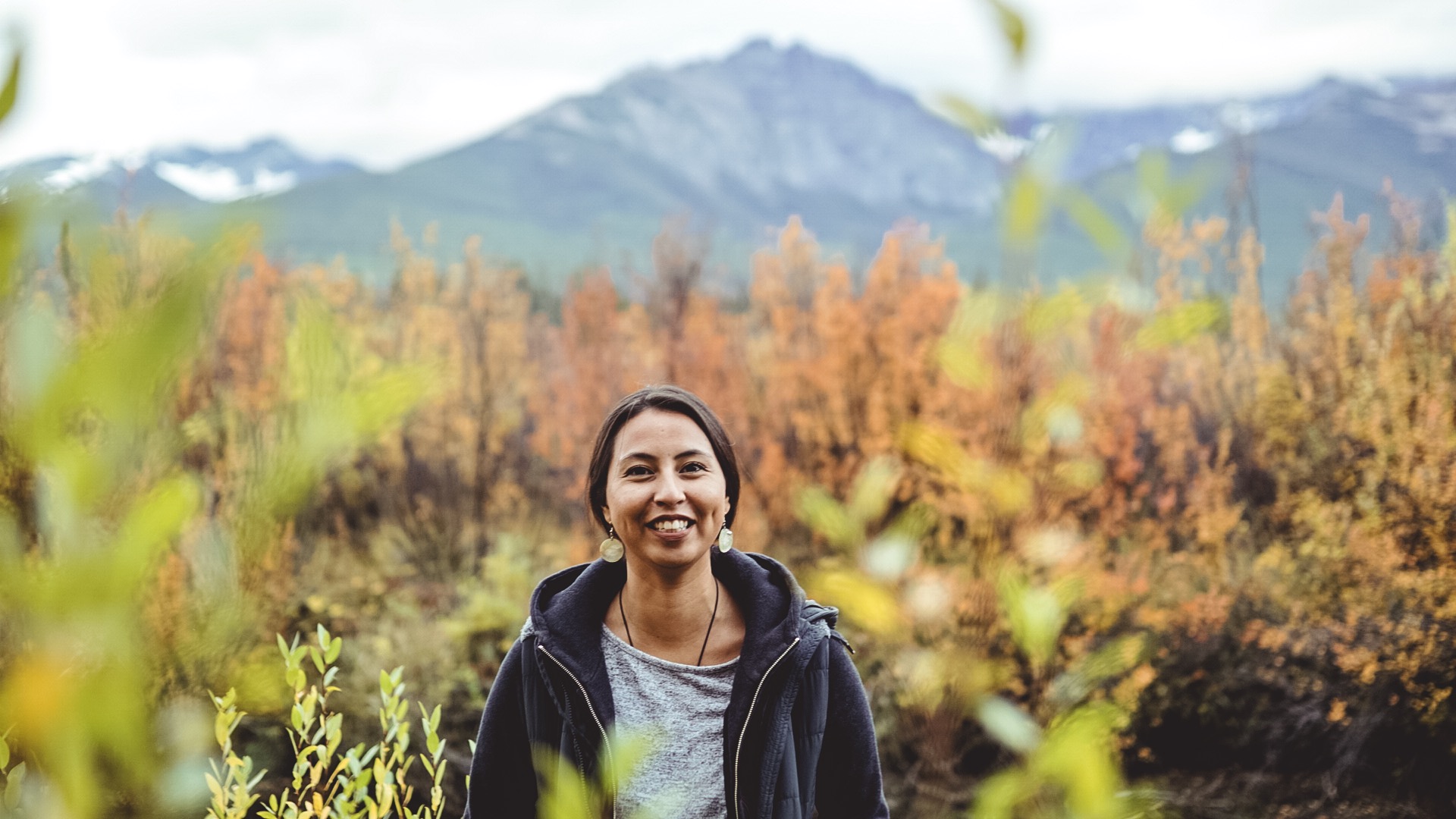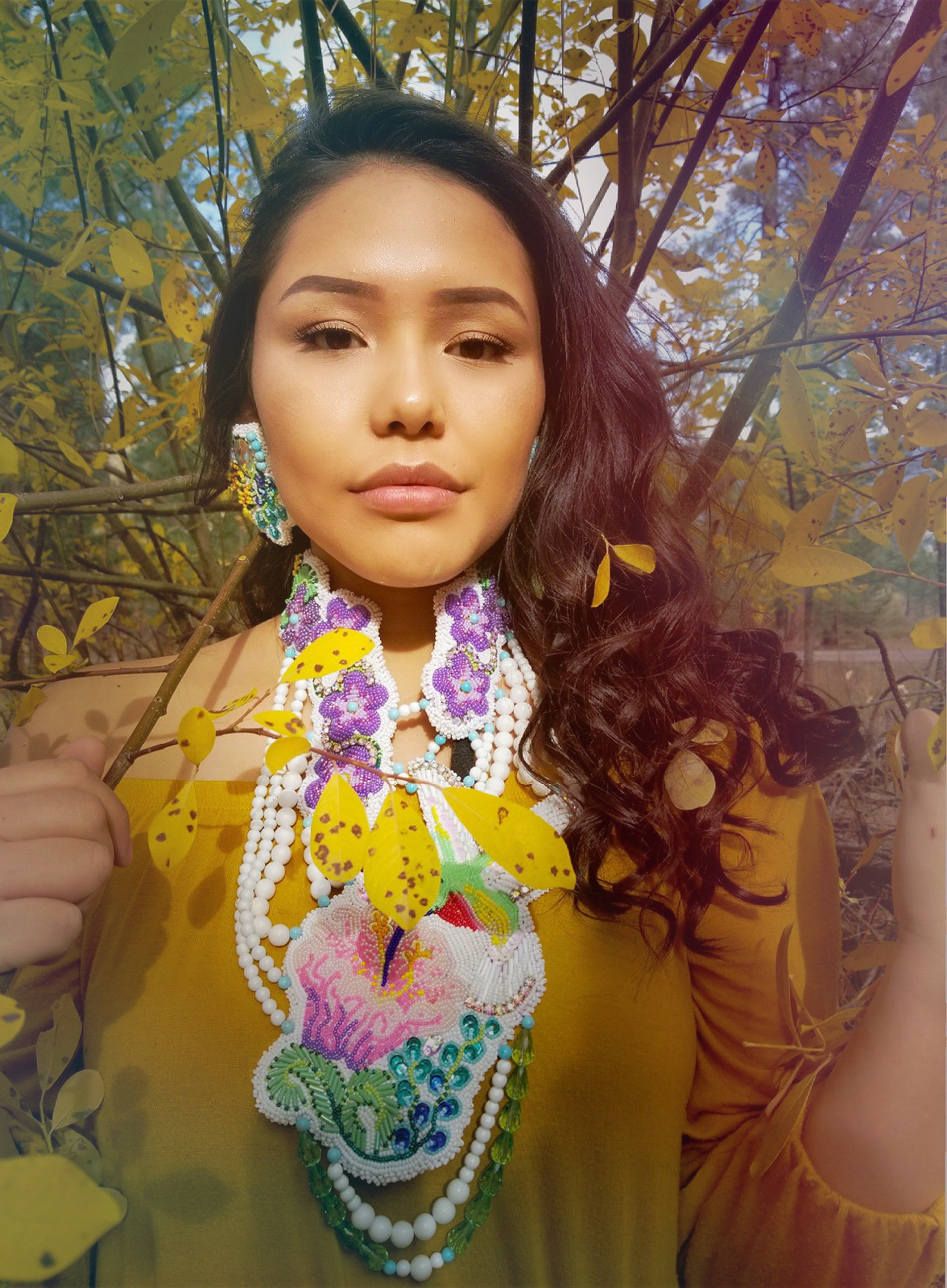Message from an Indigenous mother to her three-year-old during COVID-19

“Will aunty die from the virus?” My three-year old daughter asked me that question one morning, as we sat on the floor playing under the soft warmth of the morning sun. “Is Pays Plat safe from the virus?”
Back to back, the questions came, her mind working to untangle what this global COVID-19 crisis really meant to her. I paused before answering, recognizing the emotion of fear that was driving her questions and knowing that my answers would greatly impact her process.
“It is highly unlikely. Aunty is safe. Our families are safe. We are safe,” I replied, smiling.
We delved into a deeper conversation about the virus itself, how it's impacting the world globally, and how it's affecting the communities she comes from — Poundmaker Cree Nation and Pawgwasheeng (Pays Plat First Nation), to be exact. We talked about our emotions around the pandemic and about how being afraid was OK.
I explained how our people, generations ago, survived many pandemics, and so would we, because it was in our bloodlines.
“I am a superhero,” she said to me. “I am afraid, and I am a superhero, too!” And she is, like many children around the world. She is a superhero, who is also afraid. And she shared an important teaching in that simple sentence.
There is a collective fear and grief evolving from COVID-19. It has insidiously woven its way into our daily lives. A lot of our individual behaviours and responses to the pandemic, whether children or adults, are basic trauma responses. And that is OK, that’s what makes us human.
It's not necessarily the pandemic that is making many of us feel all kinds of uncomfortable emotions. At the core of it all, we no longer have capitalistic and colonial systems to use as avenues of distraction from our pain, grief and sadness.
We now have to stay home and face our shit. Grief from 10 years ago will suddenly land in our laps, and we have no choice but to feel it.
A distraction-less time is a time the land carved out for us to achieve our emotional freedom, if we make the choice to commit to feeling our feelings, rather than distracting ourselves from them.

During this time, it is important to be mindful of how our ancestors coped with past pandemics.
But we must also remember that how our ancestors coped with pandemics differs entirely from how we cope with pandemics, because of the paradigm we live in today. Our ancestors, generations ago, had a completely different relationship to the land compared to how we relate to the land today.
Their commitment, discipline and knowledge, in relation to our traditional kinship practices, medicines, languages, life cycles of soil, animals and all life forms profoundly differs from our relationship with these systems today.
I was telling the truth when I told my daughter that our people survived many pandemics, and that very likely, so would we, because it is in our bloodlines.
The resiliency of our ancestors in times of pandemic is instilled in our DNA at a cellular level, but, we will not survive the same fate if we do not actively and significantly change our ways of life.
The only way many of our people will survive this pandemic, and future pandemics to come, is for our people to make the choice to live our lives dedicated and committed to the systems our people lived their lives in generations ago — ego free and from a place free of carelessness and callousness.
What does that mean? It means recognizing and admitting that we can be a superhero, and be scared at the same time.
It means being authentic with our emotional experiences during the pandemic. Our traditional kinship teachings taught us, and continue to teach us, to always be truthful, no matter the situation. That includes being truthful emotionally with yourself and with your loved ones. Because, traditionally, if you weren’t truthful in all kinds of ways, you were going against our traditional laws, and the outcome of that action in itself would fall onto future generations.
Reviving our traditional systems means proactively unravelling the knowledge and teachings that come with having a deeply intertwined relationship with the land. We often witness a surface colonial version of a relationship with the land, which limits the potential of understanding what this relationship used to really look like.
It’s not just about being out on the land — it’s about following and recognizing the natural laws and natural governance systems that exist on the land.
It’s about knowing that natural laws govern you, much like they govern the land. It’s about honouring every life cycle, from the molecules in the soil, to the rabbits carrying life, to the moose giving birth, and following all the protocol that comes with relating to the land in an integral way.
It means looking at and committing to your relationship with the land, from that place that is deeply rooted into the life cycles of the land. It means undoing everything colonialism has taught us about how to relate to children, and returning to the adoration and godliness that was practiced in relation to children.
It means knowing not to “panic-harvest,” or “panic-hunt,” when it comes to gathering medicines on the land for pneumonia and illness. There are certain times of the year to harvest medicines and certain times to hunt, snare or trap animals. We must honour their life cycles if we are to live honourably during this pandemic.
In our traditional kinship systems, the hunters, warriors, medicine people and midwives had to make the conscious commitment to be present for the survival of our communities in times of crisis. Letting go of resentments will aid in our ability to be present.
Ultimately, in order for our people to survive a pandemic, much like our people did generations ago, we must return to and rely on our traditional kinship practices, medicines, our languages and the life cycles of soil, animals and all life forms.
It’s not just about returning to these teachings in order to survive this pandemic, it’s about remembering everything that comes with our teachings. It’s about the prayers, the humility, the protection of mothers in all life forms. The knowing when to stop the hunt. It’s the knowledge of the line between being proud and being humble. It’s about the practice of knowing who we are, and where we come from, in every area of our lives.
It's about the questions our three-year-old children ask us, and the teachings they carry with them. It's about not running from the difficult emotions. It's about remembering. It's about our babies, our communities and our nations.







Comments
We can be a superhero , and be scared at the same time, how true.
Andrea, I admire how you are raising your daughter. She will be a strong woman.